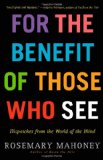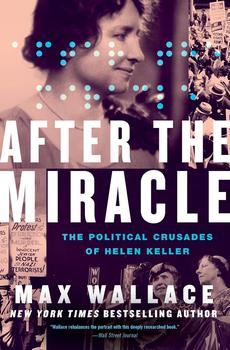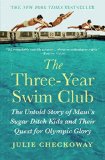Summary | Excerpt | Reviews | Beyond the book | Read-Alikes | Genres & Themes | Author Bio

Dispatches from the World of the Blind
by Rosemary MahoneyRosemary Mahoney tells the story of Braille Without Borders, the first school for the blind in Tibet, and of Sabriye Tenberken, the remarkable blind woman who founded the school.
In the tradition of Oliver Sacks's The Island of the Colorblind, Rosemary Mahoney tells the story of Braille Without Borders, the first school for the blind in Tibet, and of Sabriye Tenberken, the remarkable blind woman who founded the school. Fascinated and impressed by what she learned from the blind children of Tibet, Mahoney was moved to investigate further the cultural history of blindness. As part of her research, she spent three months teaching at Tenberken's international training center for blind adults in Kerala, India, an experience that reveals both the shocking oppression endured by the world's blind, as well as their great resilience, integrity, ingenuity, and strength.
By living among the blind, Rosemary Mahoney enables us to see them in fascinating close up, revealing their particular "quality of ease that seems to broadcast a fundamental connection to the world." Having read For The Benefit of Those Who See, you will never see the world in quite the same way again.
For the Benefit of Those Who See is a compassionate, remarkable book that offers a rare and insightful look at blind culture. The history and stories Mahoney presents are often shocking and disturbing but also reflective of human dignity, intelligence, determination, and triumph...continued
Full Review
(901 words)
This review is available to non-members for a limited time. For full access,
become a member today.
(Reviewed by Suzanne Reeder).
In her nonfiction book For the Benefit of Those Who See, Rosemary Mahoney recounts her experiences at Braille Without Borders, an international development organization that helps blind and partially sighted students gain independence, workplace skills, and professional training.
Founded in Lhasa, Tibet, the organization is the brainchild of Sabriye Tenberken. A German native, Tenberken was born with a degenerative disease of the retina and by age 12 was completely blind. Mahoney's book recalls some of Tenberken's experiences growing up. She felt patronized by her teachers and, by contrast, was ostracized and bullied by her classmates. For years she denied her blindness and even tried to hide it. "Not until I accepted my blindness," ...
This "beyond the book" feature is available to non-members for a limited time. Join today for full access.

If you liked For the Benefit of Those Who See, try these:

by Max Wallace
Published 2024
In this powerful new history, New York Times bestselling author Max Wallace draws on groundbreaking research to reframe Helen Keller's journey after the miracle at the water pump, vividly bringing to light her rarely discussed, lifelong fight for social justice across gender, class, race, and ability.

by Julie Checkoway
Published 2016
The inspirational, untold story of impoverished children who transformed themselves into world-class swimmers.
The whole problem with the world is that fools and fanatics are always so certain of themselves, and wiser people ...
Click Here to find out who said this, as well as discovering other famous literary quotes!